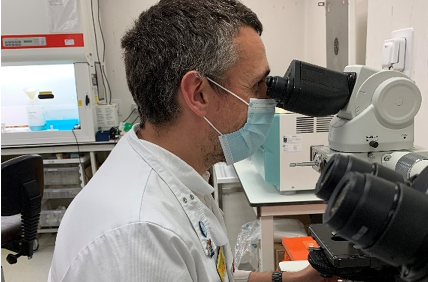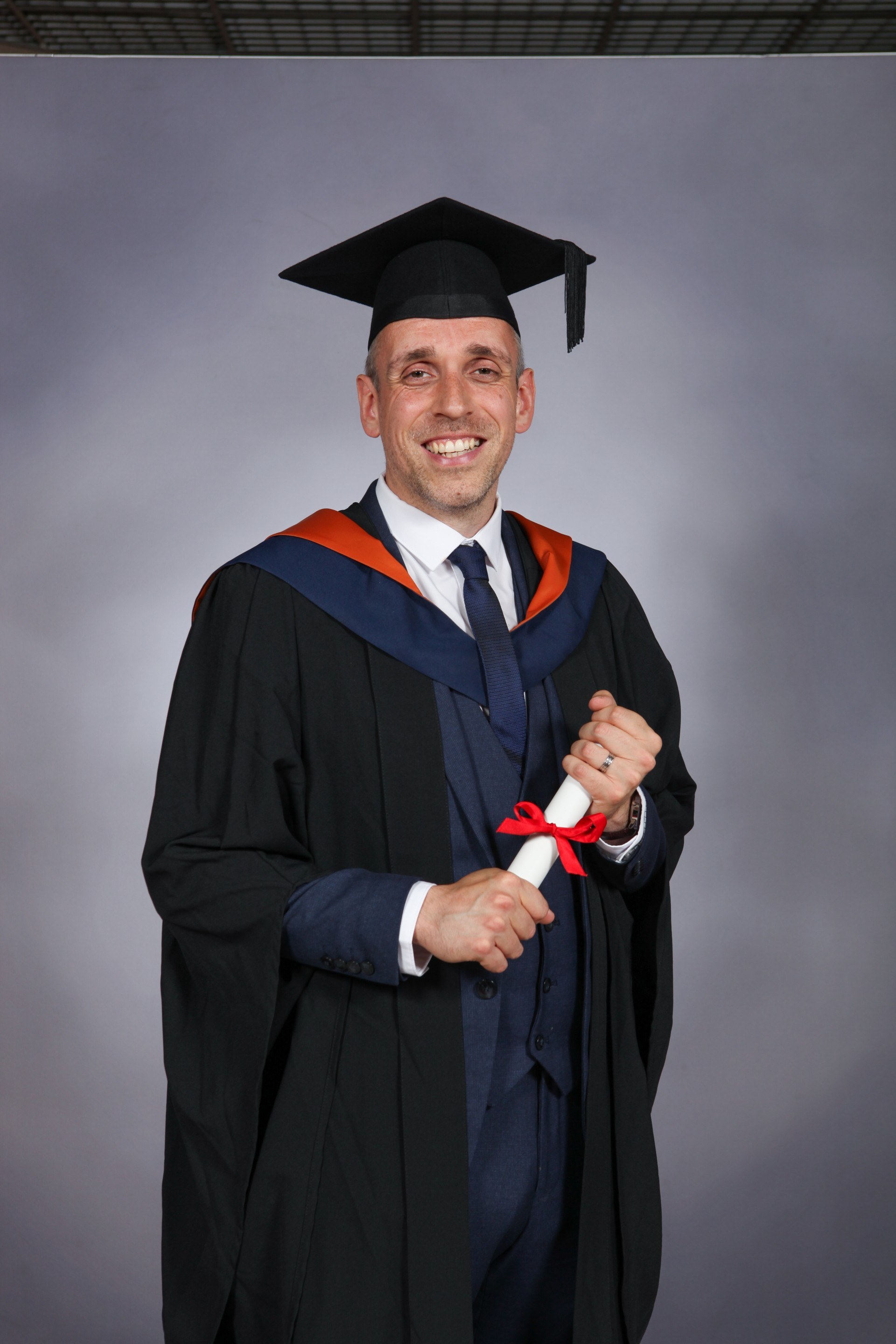The Long Way Round
Stephen Wilson, Registered Biomedical Scientist in Cytology at the Royal Victoria Infirmary (RVI) in Newcastle
Introduction
I currently work as a Registered Biomedical Scientist in Cytology at the Royal Victoria Infirmary (RVI) in Newcastle, completing my degree and IBMS Registration Portfolio in 2023. I have worked within the Cellular Pathology department in various guises over the last 13 years, first arriving as a Medical Laboratory Assistant in Cytology back in 2011 with a background and degree in Information Technology (IT). This allowed me to jump into a new Lab IT role within 6 months of my arrival, helping to support laboratory staff and Consultants as the future of Cellular Pathology was moving towards a digital world.
The role
To begin with, my day to day job involved assisting in connection issues and providing data in the lab, while still supporting Cytology. As IT became more important in Cellular Pathology, I found myself assisting the Consultants, liaising more with Trust IT and external support companies, helping set up for MDT meetings, some medical photography and microscope queries. I was lucky that a new role was created, solely focused on IT support. There were only two of us but as we were becoming busier, it was clear that we needed to expand and gained more members to “Team IT”. However, as the time passed, I found myself becoming more interested in the laboratory side of things.
A return?
I was having regular conversations with Laboratory staff and Consultant Pathologists while assisting with IT issues. I was getting to see things in Histology that you wouldn’t normally see in other industries and starting to miss the day to day of Cytology. I began to look for opportunities to return to the laboratory, looking for chances to gain qualifications that could help me progress in the future. I was able to gain an NVQ in Pathology support and return to Cytology as a Senior Healthcare Science Assistant. I still felt I had something to offer to Team IT so was able to agree that, if required, I could be called upon to assist. I had built quite a rapport with the Consultants and other staff members and would still get regular calls for help.
An opportunity?
As with many fields, change can result in opportunities. When the Cervical Screening Programme became centralised, Cytology staffing was reduced, some following the work to a different Trust, others taking early retirement or found roles elsewhere in the department. I was at a bit of a crossroads. I was sad to see a lot of my colleagues and friends leave, but I decided my place was here at the RVI. I had already discussed several times with a colleague about progression and a return to University (if my current qualifications allowed) and the training officer approached me with a chance to attain my degree and the required qualifications to become a Registered BMS. I was required to apply and interview for the role and could not believe my luck, I was getting a chance to stay in my job while attending university as an Apprentice.
Return to University
It had been 13 years since I had first graduated from university. I remember the workload and the time required to achieve the grades. This time, along with a full time job, I had a wife and a 3 month old to balance so I was both excited and extremely anxious. Factor in the effects of Covid and my first semester was a whirlwind. Like most, the university was not prepared for such an event, but I cannot commend the staff enough for their ingenuity and commitment to still deliver the best for their students. I attended Sunderland University which is an accredited provider, and completed the BSc (Hons) Healthcare Science Practice (Cellular Sciences) which allowed me to specialise in my chosen area. I was able to complete all the modules, through traditional exams and assignments, while also completing my registration portfolio and an additional Practitioner Training Programme (PTP) portfolio leading to an end-point assessment. (This was similar to the registration portfolio, collecting evidence of progression during placements around different sections of the laboratory as part of the modernising scientific careers (MSC) pathway).

The experience
I was able to graduate in July 2023, became HCPC registered and started my role as a Registered Biomedical Scientist in Cytology. As I look back on my time during my experience there were many challenges to going to university as a mature student. I cannot deny that I would not have been in the position I am now, with the opportunities I was given without my IT degree and the path I followed once leaving school. I still use this daily in my role and has been described as my “superpower” by my senior. The knowledge I have gained, understanding more of the why we do things than just the how, have changed the way I approach my job. There were certainly some frustrating and emotional times, plus the arrival of my second child at the start of my final year didn’t help my stress levels. Positively, my final year project I undertook within the department has now become day to day practice in Cytology. This led to us introducing a density gradient reagent when preparing heavily bloodstained fluids, resulting in a reduction in repeat preparations of these specimens and better quality slides for microscopy. I do feel really proud of myself for what I have achieved, something I could not have imagined when starting all those years ago.

The future
Looking forward, there are still more opportunities available to progress up the Biomedical Science ladder. Currently I have been cross covering and training in Histology reception and dissection which has added to my skillset and opened more doors should I look to advance. The department is a strong advocate of training their staff so I know the support will be there when the time comes. The evolution of the IBMS Specialist Portfolio also gives me a chance to explore more of Cellular Pathology if I so choose. It may not have been the most conventional path, but why stop now?
